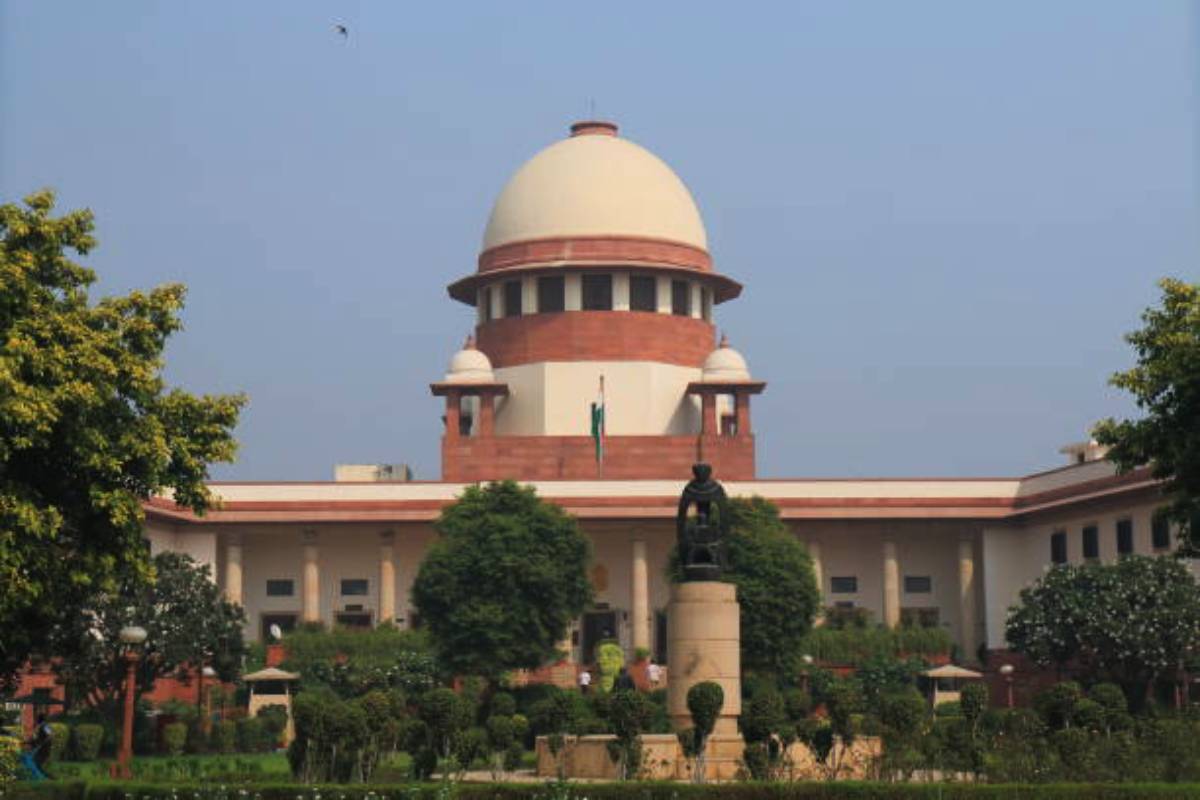The Supreme Court was told on Thursday that the abrogation of Article 370 and the bifurcation of Jammu and Kashmir into two Union Territories – J&K and Ladakh – was the “killing” of Jamhooriyat (democracy) and Insaniyat (humanity) promised by late prime minister Atal Bihari Vajpayee to the people of the Kashmir while finding a solution of the problem in the course of resolving the troubles facing the state.
“Sometime back the great leader of this country Atal Bihari Vajpayee came to Srinagar and delivered a speech he said that the issue of Kashmir I am going to solve within the preview of Jamhooriyat and Insaniyat, unfortunately the respondent (Central government) killed both on August 5 and 6 August, 2018”, senior advocate Z.A. Shah told a five-judge constitution bench comprising Chief Justice D.Y. Chandrachud, Justice Sanjay Kishan Kaul, Justice Sanjiv Khanna, Justice B.R. Gavai and Justice Surya Kant.
Advertisement
Zafar Shah was assisted by Advocate Dharmendra Kumar Sinha who to represented the high court.
Resuming his inconclusive arguments from Wednesday, senior advocate Zafar A Shah touched on a number of issues pointing to legal infirmities in the unilateral acts of the Central government leading to the abrogation of Article 370 and the bifurcation of the State, which he said could not have been done without the concurrence of the Jammu and Kashmir assembly.
Zafar Shah said the abrogation of Article 370 of the constitution took away even the “skeleton” of “constitutional autonomy” that Jammu & Kashmir had, embedded in Indian constitution, read in a historical perspective with Article 370, the J&K constitution, instrumental of accession, and the 1954 order.
Referring to earlier argument by senior advocate Kapil Sibal that what was now left of Article 370 was a “skeleton” as most of the powers under it were given up by the J&K over the years, Zafar Shah appearing for Jammu & Kashmir High Court Bar Association, Srinagar, said that even if skeleton of Article 370 was left, it was troubling “someone” and it was abrogated. He blamed the leaders of J&K who headed the government in the State for “chipping” away the powers that the State legislature had under the Article 370.
Pointing to the “serious breach of oath and constitutional misconduct” by the then Governor, Zafar Shah said that Governor took the oath to “preserve, protect and defend the constitution and law and devote to service and wellbeing of the people of the State” and he “stabbed the people of J&K in the back”
Governor, Zafar Shah said, “committed a serious breach of the oath by recommending the abrogation of Article 370, which he could not have done.
Referring to the “serious constitutional misconduct” by the Governor, Zafar Shah said that had he been a sitting Governor perhaps an impeachment motion would have been moved against him.
“He (Governor) was to uphold the J&K constitution, and he destroys it by making recommendation to the President” which he could not have made much less under Article 370 and creating a situation which in the present political scenario cannot be put back, Zafar Shah told the bench.
In a jibe, Zafar Shah said that now this Governor is “spilling beans across the country” and in a statement he has said that he had “signed on dotted lines”.
Senior advocate Rajeev Dhavan appearing for one of the petitioners took the court through the provisions of Article 370, telling the constitution bench that the boundaries of J&K or their names could not have been altered without the concurrence of the J&K assembly.
All the UTs except for Chandigarh were carved out by amending the constitution but in the instant case it was done taking recourse to Article 3 & 4 of the constitution, he said.
Dhavan said, “It is the only State in India where a State has been reduced to UTs. This is unprecedented. By a circuitous procedure, you converted through Art 3 & 4 of the constitution of India you created two UTs one with some powers and other none.”
Dhavan will resume his arguments on August 16 when the constitution bench will assemble.
The constitution bench is hearing a batch of petitions challenging the scrapping of Article 370 of the constitution and bifurcating the state into two Union Territories.
On August 5, 2019, the Central government announced the revocation of the special status of Jammu and Kashmir granted under Article 370 and split the region into two Union territories.
Besides individual petitioner who have approached the top court on the abrogation of Article 370 and the bifurcation of the State reducing it to a Union Territory, other petitioners include Jammu and Kashmir Peoples Conference, Jammu and Kashmir High Court Bar Association, Peoples Union for Civil Liberties, and the West Pakistan Refugees Action Committee Cell – 1947.









